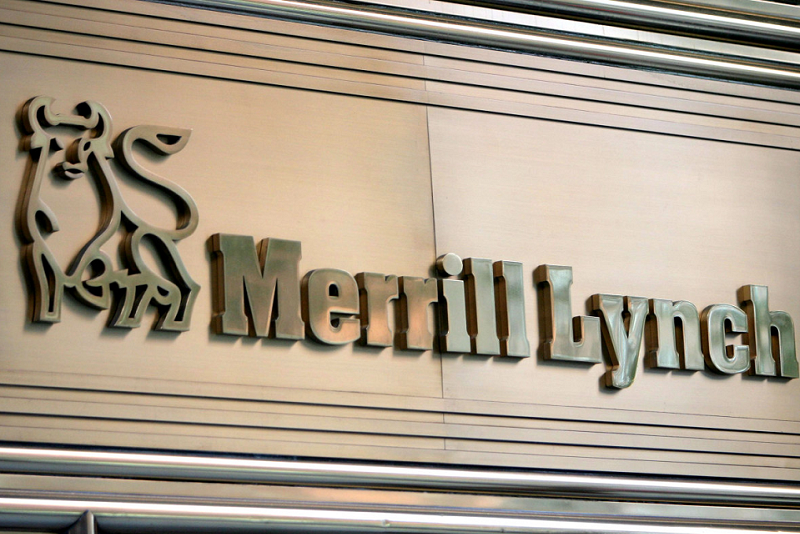BROWSE BY TOPIC
- Bad Brokers
- Compliance Concepts
- Investor Protection
- Investments - Unsuitable
- Investments - Strategies
- Investments - Private
- Features/Scandals
- Companies
- Technology/Internet
- Rules & Regulations
- Crimes
- Investments
- Bad Advisors
- Boiler Rooms
- Hirings/Transitions
- Terminations/Cost Cutting
- Regulators
- Wall Street News
- General News
- Donald Trump & Co.
- Lawsuits/Arbitrations
- Regulatory Sanctions
- Big Banks
- People
TRENDING TAGS
Stories of Interest
- Sarah ten Siethoff is New Associate Director of SEC Investment Management Rulemaking Office
- Catherine Keating Appointed CEO of BNY Mellon Wealth Management
- Credit Suisse to Pay $47Mn to Resolve DOJ Asia Probe
- SEC Chair Clayton Goes 'Hat in Hand' Before Congress on 2019 Budget Request
- SEC's Opening Remarks to the Elder Justice Coordinating Council
- Massachusetts Jury Convicts CA Attorney of Securities Fraud
- Deutsche Bank Says 3 Senior Investment Bankers to Leave Firm
- World’s Biggest Hedge Fund Reportedly ‘Bearish On Financial Assets’
- SEC Fines Constant Contact, Popular Email Marketer, for Overstating Subscriber Numbers
- SocGen Agrees to Pay $1.3 Billion to End Libya, Libor Probes
- Cryptocurrency Exchange Bitfinex Briefly Halts Trading After Cyber Attack
- SEC Names Valerie Szczepanik Senior Advisor for Digital Assets and Innovation
- SEC Modernizes Delivery of Fund Reports, Seeks Public Feedback on Improving Fund Disclosure
- NYSE Says SEC Plan to Limit Exchange Rebates Would Hurt Investors
- Deutsche Bank faces another challenge with Fed stress test
- Former JPMorgan Broker Files racial discrimination suit against company
- $3.3Mn Winning Bid for Lunch with Warren Buffett
- Julie Erhardt is SEC's New Acting Chief Risk Officer
- Chyhe Becker is SEC's New Acting Chief Economist, Acting Director of Economic and Risk Analysis Division
- Getting a Handle on Virtual Currencies - FINRA
ABOUT FINANCIALISH
We seek to provide information, insights and direction that may enable the Financial Community to effectively and efficiently operate in a regulatory risk-free environment by curating content from all over the web.
Stay Informed with the latest fanancialish news.
SUBSCRIBE FOR
NEWSLETTERS & ALERTS
Merrill Lynch Pays for Gatekeeping Failures in Sale of Unregistered Securities
Merrill Lynch, Pierce, Fenner & Smith agreed to pay over $1.4 million in penalties, disgorgement and prejudgment interest to settle SEC charges that it failed to perform required gatekeeping functions in the sales of unregistered securities on behalf of a China-based issuer and its affiliates.
SEC FINDINGS. From January 2011 to August 2011, Merrill Lynch sold almost 3 million shares of Longtop Financial Technological Limited’s securities into the market despite red flags indicating that the sales could be part of an unlawful unregistered distribution. Ultimately, the distribution generated almost $38 million in proceeds for the overseas issuer and its affiliates.
Longtop’s securities were trading in the U.S. as American Depositary Shares (“ADSs”). Longtop’s Chairman, who had obtained the 3 million unregistered shares from Longtop as one of its founders, purportedly gifted those shares through a trust to existing and ex-employees of Longtop, who were the purported beneficiaries of that trust. The related ADSs were then sold in about 68 transactions through an account at Merrill’s Singapore branch office held in the name of the trust’s nominee (“Nominee”).
Attendant Rules. Merrill Lynch's office should have followed the following rules and procedures:
- Section 5 of the Securities Act generally requires registration of securities offerings, or an available exemption from registration, including for resales such as the sales through the Nominee account at Merrill.
- Although brokers frequently rely on an exemption under Section 4(a)(4) of the Securities Act - i.e., the brokers’ transaction exemption - this exemption was not available to Merrill for any of these sales.
- For this exemption to be available, Merrill was required, before selling securities on its customers’ behalf, to engage in a reasonable inquiry into the facts surrounding the customers’ proposed sales to determine if the customers were engaging in an unlawful distribution of securities.
- The amount of inquiry a broker must conduct as part of this reasonable inquiry varies with the facts and circumstances of each transaction.
Red Flags Presented to Merrill Lynch. During the 8 month period in question, Merrill was presented with various red flags that should have prompted the firm to conduct further inquiry and consider whether an exemption from securities offering registration was available. For example, …
- In April 2011, an online report accused Longtop of financial fraud and questioned the legitimacy of the Chairman’s gift of shares.
- In May 2011, Longtop’s auditor resigned, citing the Chairman’s admissions of fraud;
- In August 2011, Longtop’s securities were delisted by the NYSE.
[Click here for further details: SEC Administrative Proceeding.]





